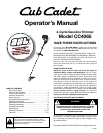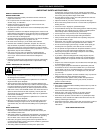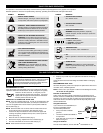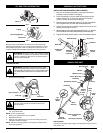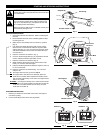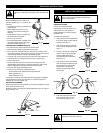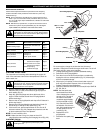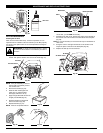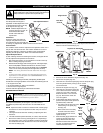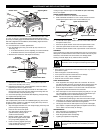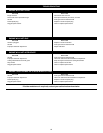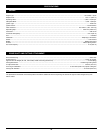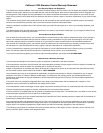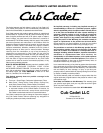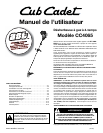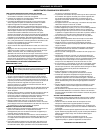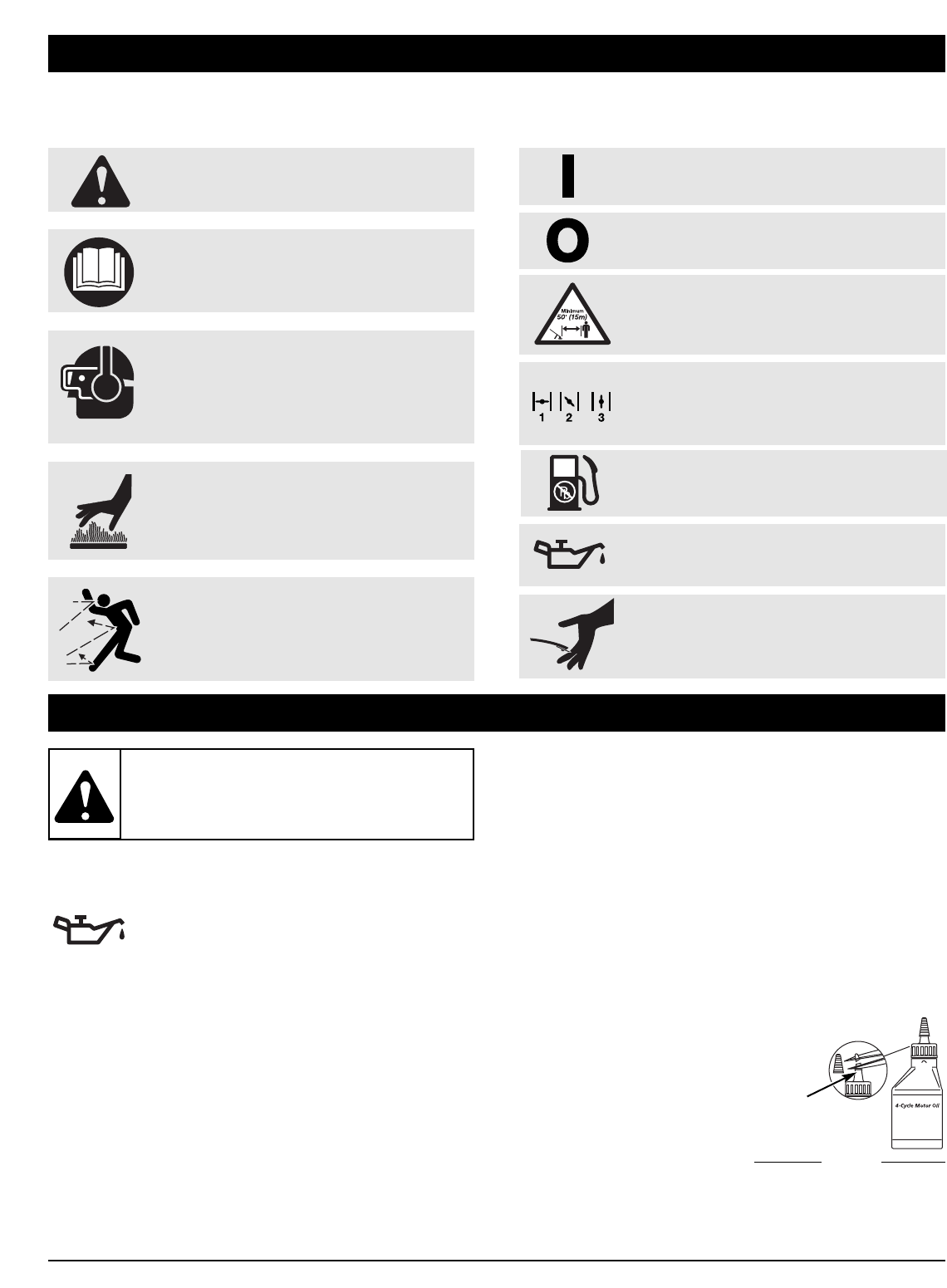
3
RULES FOR SAFE OPERATION
SYMBOL MEANING
• ON/OFF STOP CONTROL
ON / START / RUN
• WARNING - READ OPERATOR'S MANUAL
Read the operator’s manual(s) and follow all warnings
and safety instructions. Failure to do so can result in
serious injury to the operator and/or bystanders.
This operator's manual describes safety and international symbols and pictographs that may appear on this product.
Read the operator's manual for complete safety, assembly, operating and maintenance and repair information.
• ON/OFF STOP CONTROL
OFF or STOP
SYMBOL MEANING
• SAFETY ALERT SYMBOL
Indicates danger, warning or caution. May be used
in conjunction with other symbols or pictographs.
• WEAR EYE AND HEARING PROTECTION
WARNING: Thrown objects and loud noise can
cause severe eye injury and hearing loss. Wear eye
protection meeting ANSI Z87.1 standards and ear
protection when operating this unit. Use a full face
shield when needed.
• KEEP BYSTANDERS AWAY
WARNING: Keep all bystanders, especially
children and pets, at least 50 feet (15 m) from the
operating area.
• THROWN OBJECTS AND ROTATING CUTTER
CAN CAUSE SEVERE INJURY
WARNING: Do not operate without the cutting
attachment shield in place. Keep away from the
rotating cutting attachment.
• HOT SURFACE WARNING
Do not touch a hot muffler, gear housing or cylinder.
You may get burned. These parts get extremely hot
from operation. They remain hot for a short time after
the unit is turned off.
OIL AND FUEL INFORMATION
WARNING: OVERFILLING OIL CRANKCASE MAY
CAUSE SERIOUS PERSONAL INJURY. Check and maintain
the proper oil level in the crank case; it is important and
cannot be overemphasized. Check the oil before each use
and change it as needed. See Changing the Oil.
RECOMMENDED OIL TYPE
Using the proper type and weight of oil in the crankcase is extremely
important. Check the oil before each use and change the oil regularly.
Failure to use the correct oil, or using dirty oil, can
cause premature engine wear and failure. Use a high-
quality SAE 30 weight oil of API (American Petroleum
Institute) service class SF, SG, SH.
ADDING OIL TO CRANKCASE: INITIAL USE
NOTE: This unit is shipped without oil. In order to avoid damage to the
unit, put oil in the crankcase before you attempt to start the unit.
Your unit is supplied with one 3.04 fluid oz. (90 ml) bottle of SAE 30
SF, SG, SH oil (Fig. 1).
NOTE: Save the bottle of oil. It can be used to measure the correct
amount during future oil changes. See Changing the Oil.
1. Unscrew the top of the bottle of oil and remove the paper seal
covering the opening. Replace the top. Next, cut the tip off the
funnel spout (Fig. 1).
2. Place the unit on a flat level surface (Fig. 2).
3. Remove the oil plug / dipstick from the crankcase (Fig. 3).
4. Pour the entire bottle of oil into the oil fill hole (Fig. 3).
NOTE: Never add oil to the fuel or fuel tank.
5. Wipe up any oil that may have spilled and reinstall the oil fill plug /
dipstick.
Check oil before each use and change as needed. Refer to Changing
the Oil.
RECOMMENDED FUEL TYPE
Old fuel is the primary reason for improper unit performance. Be sure to
use fresh, clean, unleaded gasoline.
NOTE: This is a four cycle engine. In order to avoid damage to the unit,
do not mix oil with gasoline.
Definition of Blended Fuels
Today's fuels are often a blend of gasoline and oxygenates such as
ethanol, methanol or MTBE (ether). Alcohol-blended fuel absorbs water.
As little as 1% water in the fuel can make fuel and oil separate or form
acids when stored. Use fresh fuel (less than 60 days old), when using
alcohol-blended fuel.
Using Blended Fuels
If you choose to use a blended fuel, or
its use is unavoidable, follow
recommended precautions:
• Always use fresh unleaded
gasoline
• Use the fuel additive STA-BIL
®
or
an equivalent
• Drain tank and run the engine dry
before storing unit
Using Fuel Additives
The use of fuel additives, such as STA-BIL
®
Gas Stabilizer or an
Fig. 1
Funnel
Spout
• UNLEADED FUEL
Always use clean, fresh unleaded fuel
• OIL
Refer to operator’s manual for the proper type of
oil.
• SHARP BLADE
WARNING: Sharp blade on cutting attachment
shield. To prevent serious injury, do not touch the
line cutting blade.
• CHOKE CONTROL
1. • FULL choke position
2. • PARTIAL choke position
3. • RUN choke position



